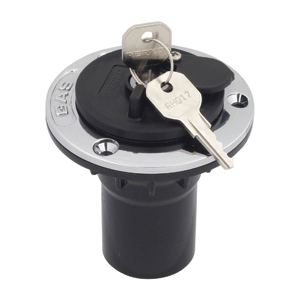Marine Hardware: Essential Components for Reliable Boating
Introduction
Marine hardware encompasses a wide range of components that play crucial roles in the operation, functionality, and safety of boats. From anchors and cleats to hinges and latches, these hardware pieces ensure the structural integrity, stability, and efficiency of various systems on board. In this comprehensive guide, we will explore the essential marine hardware components, their functions, and best practices for selection, installation, and maintenance.
Anchors
Anchors are fundamental components of a boat's anchoring system, providing stability and preventing drift. Consider the following anchor types:
- Fluke (Danforth) Anchor: Suitable for sandy or muddy bottoms.
- Plow (CQR) Anchor: Ideal for various seabeds and provides excellent holding power.
- Claw (Bruce) Anchor: Effective in rocky or weedy bottoms.
- Mushroom Anchor: Suitable for small boats in calm conditions.
When selecting an anchor, consider factors such as the size and weight of your boat, the type of seabed you will be anchoring in, and prevailing weather conditions.
Cleats
Cleats are sturdy metal or plastic fittings used to secure lines and ropes on a boat. Here are some considerations for cleats:
- Choose cleats made of corrosion-resistant materials such as stainless steel or aluminum.
- Install cleats securely to provide strong attachment points for docking, anchoring, and securing lines.
- Consider the size and design of the cleat based on the diameter and type of lines you will be using.
Hinges and Latches
Hinges and latches are essential for opening, closing, and securing various compartments, hatches, and doors on a boat. Consider the following:
- Select high-quality hinges and latches that are resistant to corrosion, as they will be exposed to the marine environment.
- Install hinges and latches properly to ensure smooth operation, proper alignment, and secure closure.
- Regularly lubricate hinges and latches to prevent rust and ensure smooth functioning.
Deck Hardware
Deck hardware includes a variety of components that support the operation and functionality of a boat's deck. Here are some key examples:
- Cleats: Provide secure attachment points for lines and ropes.
- Chocks: Guide lines and prevent chafing.
- Fairleads: Direct lines to the desired location on the boat.
- Hatches: Provide access to compartments and storage areas.
- Railings: Enhance safety by providing support and preventing falls overboard.
Proper selection, installation, and maintenance of deck hardware are crucial for safe and efficient deck operations.
Rigging Hardware
Rigging hardware encompasses the components used in a boat's rigging system, such as stays, shrouds, turnbuckles, and blocks. Here are some considerations:
- Inspect rigging hardware regularly for signs of wear, corrosion, or damage.
- Replace worn or damaged rigging hardware promptly to ensure safe and reliable rigging.
- Properly tension rigging hardware to maintain optimal sail shape and overall boat performance.
Maintenance and Care
Proper maintenance and care of marine hardware are essential for longevity and performance. Consider the following tips:
- Regularly inspect hardware for signs of wear, corrosion, or damage.
- Clean hardware with fresh water and mild soap regularly to remove salt residue and dirt.
- Lubricate moving parts, hinges, and latches to prevent rust and ensure smooth operation.
- Replace any worn or damaged hardware promptly to maintain safety and functionality.





























